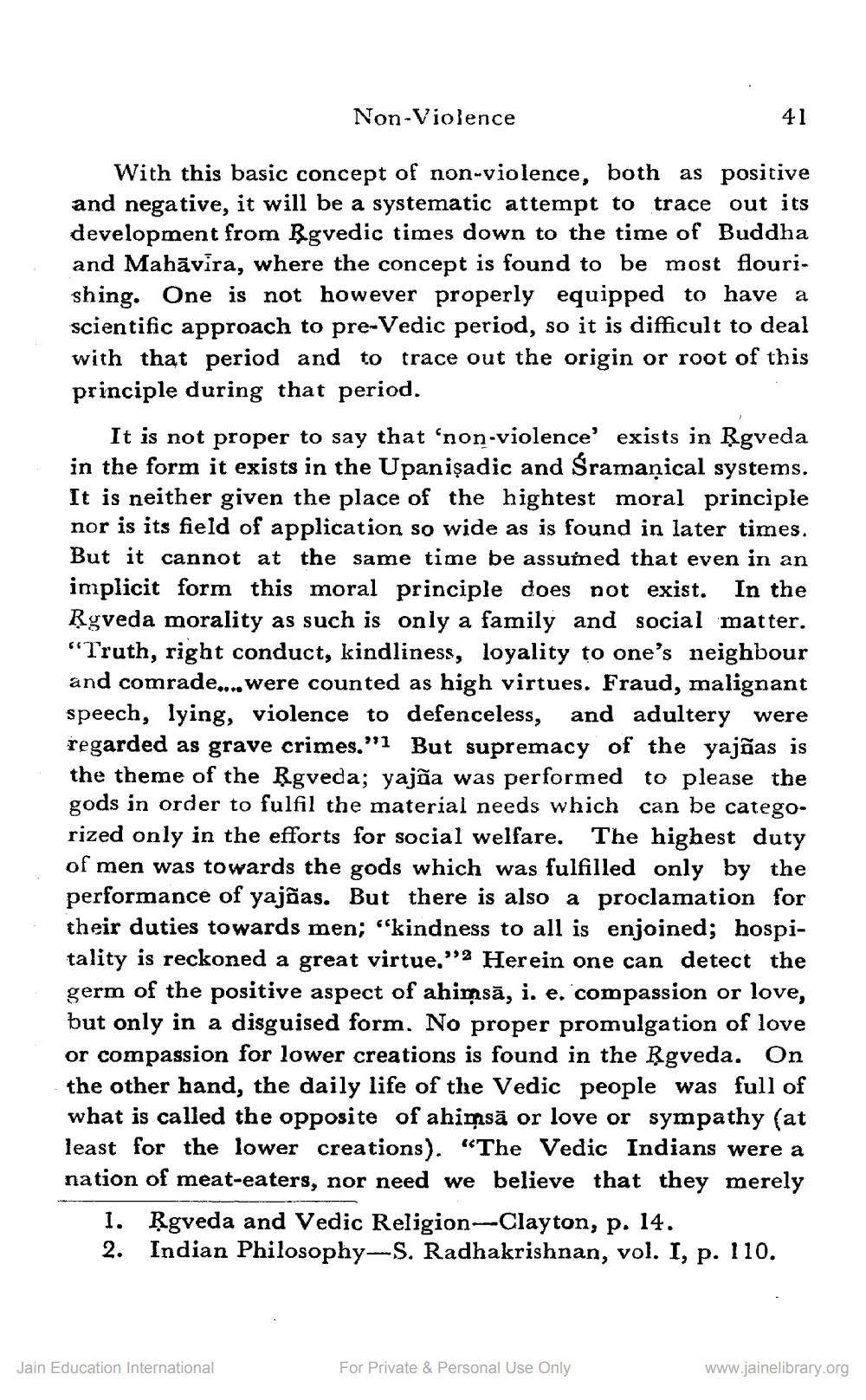________________
Non-Violence
With this basic concept of non-violence, both as positive and negative, it will be a systematic attempt to trace out its development from Rgvedic times down to the time of Buddha and Mahavira, where the concept is found to be most flourishing. One is not however properly equipped to have a scientific approach to pre-Vedic period, so it is difficult to deal with that period and to trace out the origin or root of this principle during that period.
It is not proper to say that 'non-violence' exists in Ṛgveda in the form it exists in the Upanisadic and Śramaņical systems. It is neither given the place of the hightest moral principle nor is its field of application so wide as is found in later times. But it cannot at the same time be assumed that even in an implicit form this moral principle does not exist. In the Rgveda morality as such is only a family and social matter. "Truth, right conduct, kindliness, loyality to one's neighbour and comrade.... were counted as high virtues. Fraud, malignant speech, lying, violence to defenceless, and adultery were regarded as grave crimes."1 But supremacy of the yajñas is the theme of the Rgveda; yajña was performed to please the gods in order to fulfil the material needs which can be categorized only in the efforts for social welfare. The highest duty of men was towards the gods which was fulfilled only by the performance of yajñas. But there is also a proclamation for their duties towards men; "kindness to all is enjoined; hospitality is reckoned a great virtue." Herein one can detect the germ of the positive aspect of ahimsa, i. e. compassion or love, but only in a disguised form. No proper promulgation of love or compassion for lower creations is found in the Ṛgveda. On the other hand, the daily life of the Vedic people was full of what is called the opposite of ahimsa or love or sympathy (at least for the lower creations). "The Vedic Indians were a nation of meat-eaters, nor need we believe that they merely
1. Rgveda and Vedic Religion-Clayton, p. 14. 2. Indian Philosophy-S. Radhakrishnan, vol. I, p. 110.
Jain Education International
41
For Private & Personal Use Only
www.jainelibrary.org




